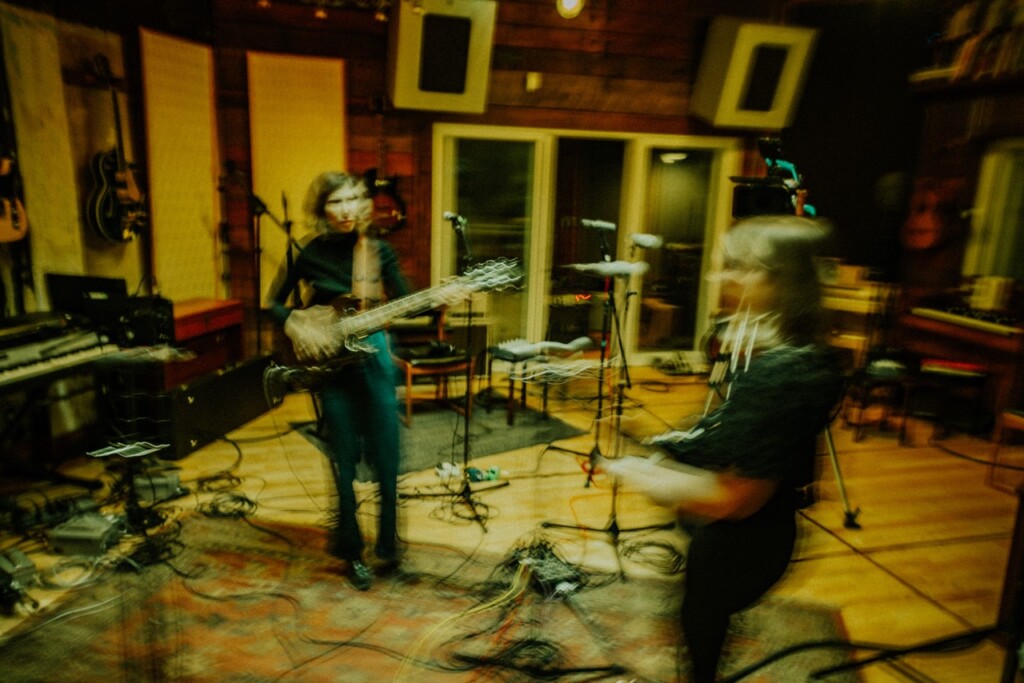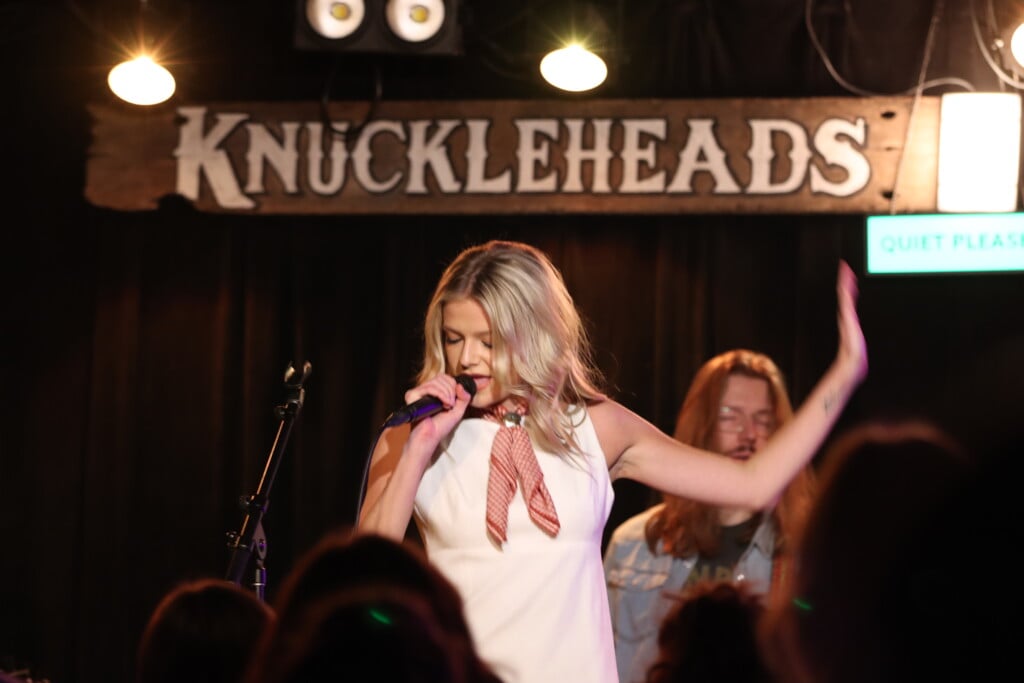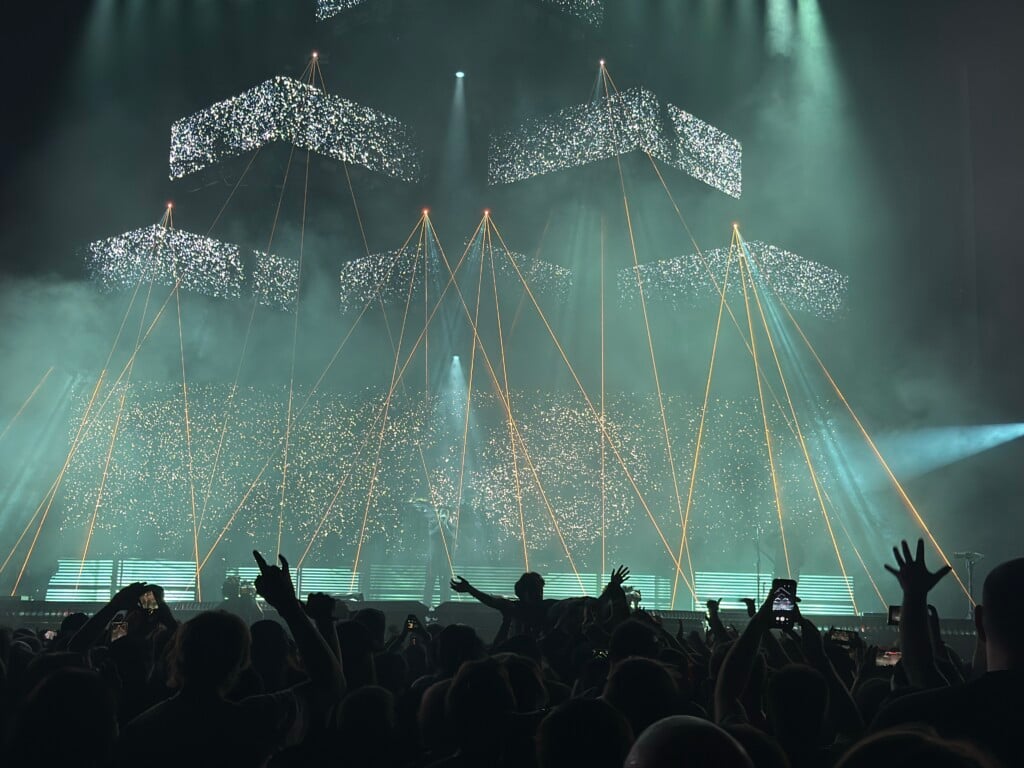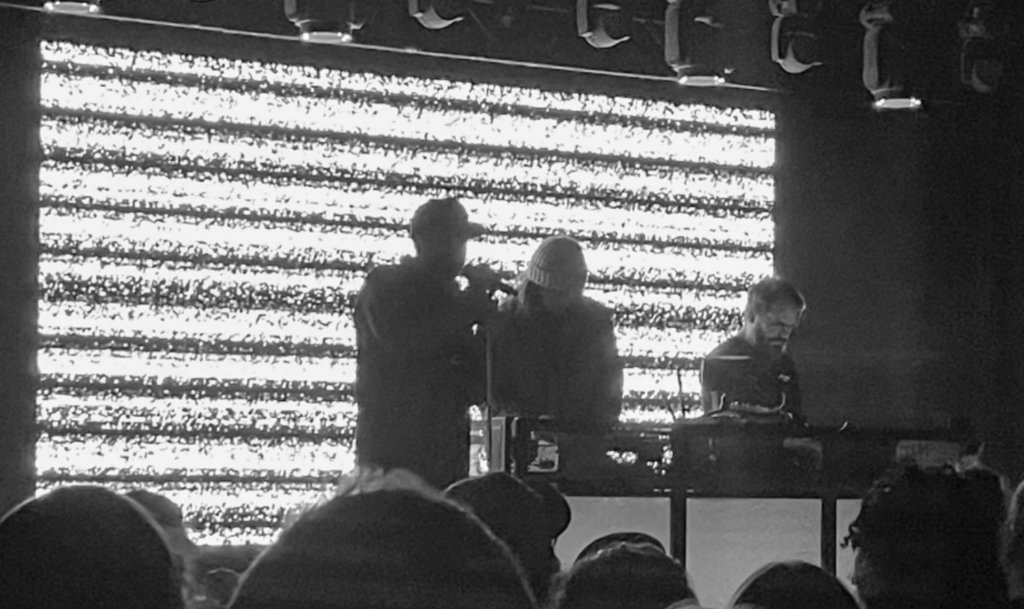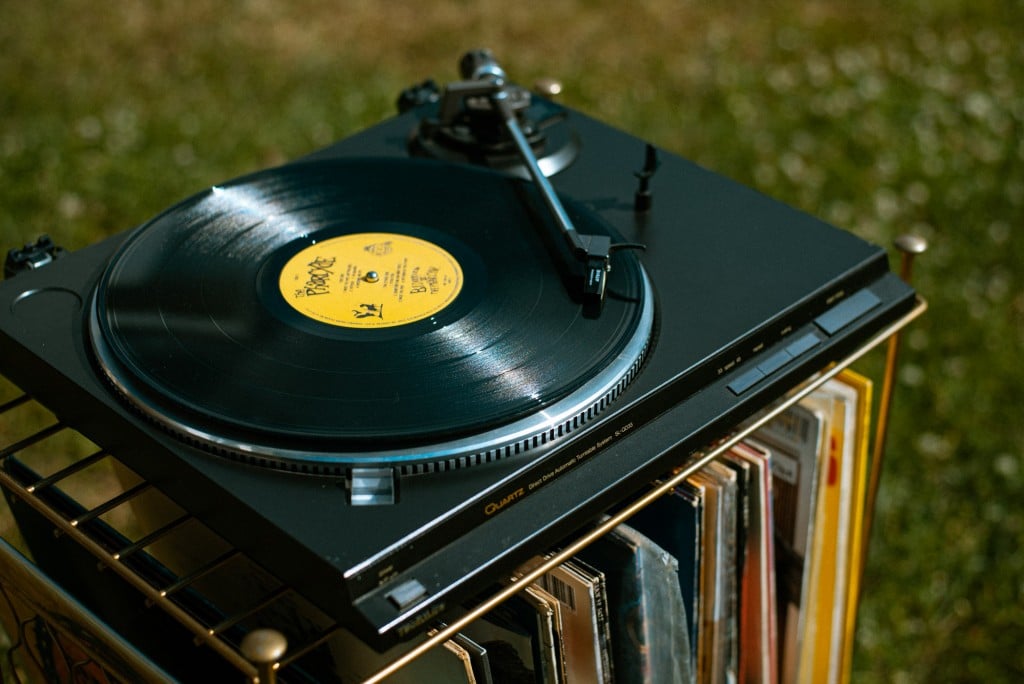Sleater-Kinney’s Corin Tucker talks Little Rope and the intricacies of touring ahead of Truman gig
Sleater-Kinney is making the rounds once again with album number 11, Little Rope. The longtime indie rock act for about 23 years has been around since 1994, including an eight-year hiatus in the middle of everything, and there seems to be no stopping soon.
Little Rope is the band’s fourth return since reuniting, and is a record born after the tragic passing of Carrie Brownstein’s mom in a car accident. Much of the vocal duties come from the other member of the duo, Corin Tucker. We connected with Tucker last month to speak about the album, their current national tour, and previous stints in the KC area.
Sleater-Kinney plays the Truman on Monday, March 25, with openers Palehound. Details on that show here.
The Pitch: I know you’re from Oregon. What is the best place to go to in Oregon?
Corin Tucker: Crater Lake is amazing. It’s a really deep volcanic lake that’s one of the most beautiful lakes in the country. It’s a national park, so you can hike around the whole crater and I think you can camp in certain places in the park. It’s very, very pristine. It’s one of the clearest lakes in the world.
Do you go to a lot of national parks? I haven’t been there, but go to a lot of them.
I do. I haven’t been to all of them. Oregon definitely has a lot of natural beauty so we try to go and visit the different places to see.
So I think the last time you played KC was opening for Wilco in 2021 at Grinders…
Is that where there was a thunderstorm?
I think so! I wasn’t there, but I do remember hearing about that. How was that tour overall and how long have you known Wilco?
We’ve known them since the ‘90s, we met them in Chicago. They’re great people and that tour was really fun, even though it was a weird COVID bubble tour where we really couldn’t go out or talk to people after the show. We had to wear masks. But they’re such great people and such great musicians that we got to hang out with each other. Occasionally we did a couple songs together. They’re great, it was really fun.
What does your timetable usually look like for prepping for a tour?
We are about to start rehearsals in California for that. We’ve pre-rehearsed and then we’re doing a bigger rehearsal, so we’re really excited. We have a great stage setup that is sort of meant to echo the album art in the live setting. We have some great players that are bringing the album to life that we’re really excited about working with. I think it’s going to be really fun. This album is well designed for the live show, so I think it’s going to be kind of dramatic and fun.
Your new album, Little Rope, released on January 19. Being a band since 1994, how have you treated record releases differently in the modern era?
I think in the ‘90s the record release show was a really big deal and we would always do a record release show on the day the record came out. For this setup it’s a little bit different. We are letting people hear the record and get ready for the tour. We did a couple of promo shows where we played some of those songs, really small shows. We haven’t played the bulk of the album for people yet, so that’s what we’re looking for for the national tour. For the record release day we did actually go to some independent record stores in Seattle and Portland and got to sign people’s records and talk to them. That was really great, actually.
I noticed you guys played The Bottleneck in Lawrence four times between 1997-2005. I have a lot of great memories at that venue so I was curious if you had any recollection from those shows?
Great shows! Every single one of them were great shows. I think we played with The Gossip there back in the ‘90s. Maybe we played a show with The Dismemberment Plan? It was such a crossroads for bands, I think it still is, but for bands in the ‘90s you would just end up sometimes sharing a bill with another band and it was really fun. Just kind of a little bit crazy and small and gross. I remember the upstairs, haha, it was just covered in graffiti. But very fun and very loose to do shows there.
I think you guys are playing 30 shows. KC is kind of in the middle, 20 or 21, and is the second in a back-to-back. When you have a back-to-back like that, do you like the first or second day better?
It really depends. Sometimes those shows are so different. Sometimes the first one can be a little rushed, but also feel a little dramatic, and the second show we usually try to do something a little different. We’re always changing the set if we are playing back-to-back nights. Sometimes that extra time gives us time to put a different song in from the catalog or something different that people haven’t seen. So we try to make use of the time if we do have a back-to-back thing. Being on the road that long, we need to keep ourselves fresh and interested in what we’re doing. So just throwing something novel in is always a good idea.
How do you continue to stay relevant given that music isn’t quite the same as it was in the ‘90s, as far as what type of music comes out and just the industry itself?
I think that we really focus on writing a record that is important to us. The music to me is really key. Making something that is meaningful and that is close to our hearts. That’s what we did with this album. We really tried to go personal on the stories but I do think the stories reflect where we are in our country right now. It really meets the moment in terms of what’s been going on with women’s rights in this country, what’s been going on with people’s bodily autonomy and trans rights in this country. They are personal stories and they are reflecting what we are going through and the conversation that we’re having as a country, as people. That’s really the core of what our job is. The delivery of the music, whether it’s streaming services and all that kind of stuff, all that to me is kind of secondary. It’s important, of course, but I think the work itself has to merit attention and relevance to where we are today.
I saw a review of Little Rope that described it as a mix of punk and new wave. Do you think that’s a fair assessment? How do you think your style has changed since you came back in ‘15?
I think that we try to bring new elements into recording and we were lucky enough to work with John Congleton on this album. We had written synth parts for a lot of the songs, and we just really wanted to incorporate that element with the guitars, and I think he really helped us synthesize that in a way that felt really organic. It gave it a texture that felt right for the songs. It added a layer of tension in the distorted tones that we really sought and got for the album. It definitely draws on punk and new wave, and the stuff that we really come from. But it also feels really fresh, in terms of what people are listening to today.
You came up with the idea for opening track “Hell” while inside a record store. What was it about that trip to the record store versus previous trips to the record store that contributed to that idea?
Yeah, it’s weird. Sometimes for me, listening to somebody else’s music in the background, my mind will kind of slip into an idea, a subconscious idea of a feeling I want to convey in a song. So I started just writing stuff into my phone and it just sometimes happens that way. And I think most songwriters know that if we don’t capture it right away it will slip away, so I think most of us sing into our phone, talk into our phone, write stuff down. I used to carry a walkman all the time. Stuff comes in weird times, weird places. But it’s very precious.
That song came as a whole feeling, it came with words, and it came with the melody, for at least the verse. It was really about the idea that we’re living in this culture in the U.S., this culture of violence where we’re sort of used to the idea that there are these terrible shootings that happen that are just part of what we’re living through. The song is playing with that idea, that with the way that human nature can really grow used to any situation and normalize it. So it’s toying with that idea and sort of turning it around with this metaphor of hell and the way that we look at different levels of existence. The chorus of the song is really meant to wake people up and say ‘This way of existing is not a given.’ In any other country in the world, they don’t live like this. It’s a way of commenting on it and asking questions rather than presenting any kind of answers.
You said that Television was a direct influence on “Small Finds.” Are there any other major or direct influences on the record? Are you a big Television fan?
Oh yeah, of course, Television was such a fundamental band for the music scene that we came from Carrie Brownstein and I as guitar players. Also, “Small Finds” definitely has a Sonic Youth vibe. They’re another major influence on us. There are so many different artists we look up to, whether it’s Nick Cave, PJ Harvey, Lucinda Williams, Tracy Chapman—I saw her at the Grammys, that was really moving. But I think for Sleater-Kinney, because we have this sort of musical language that we work in that is really specific—it’s a really weird key, it’s detuned guitars—we really filter those influences and ideas through this little world that we created, so everything always comes out sounding like a Sleater-Kinney song.
What’s different about arranging tracks without Janet Weiss in the band?
I think that Janet was really great at suggesting arrangements for the different songs and I think that it’s more of a conversation now. Sometimes even in the studio, we’ll say ‘Well, does this part really need to be that long? What if we put this part here?’ We kind of started with different things, but stuff came into the studio pretty nailed down. We pretty much knew what we wanted in terms of the structure of things. I think Carrie and I have a pretty good basis of things. Sometimes it’s ‘I think we should trim this part back’ in terms of arrangement.
Describe the experience of going to see Bratmobile and Bikini Kill in 1991. How did one event like that lead to an epiphany on deciding that this is what you wanted to do with your life?
That was the night where I saw these very young women playing music so wholeheartedly and it was so exciting and so electric. They were bringing ideas to the music that were really dangerous and interesting. It really inspired me. Being there in the room with that performance was totally electrifying, I was super young. But I definitely was like ‘I want to do that, too.’ Seeing someone a couple years older than me do it on-stage for people, it felt like a giant door was opened. That you don’t necessarily have to spend years at music school to be a performer and to have an impact on people.
What are the different ways that you come up with ideas? I heard you woke up in the middle of the night one time with an idea and recorded it into your phone. Does that happen a lot or are there various different ways that it happens?
Sometimes a thing will sort of pop into my head and I’ll go into my phone or write it down, sing into my phone. Sometimes when you’re doing something totally mundane like gardening or washing the dishes or something that’s meditative, a melody will come into my head and I’ll have to record it really quick because those ideas come out from a lot of different places. But it’s usually when I’m sitting down and playing guitar and trying to think of something. I do put things into Logic or whatever program I’m working on to start demoing things. With the technology being different now, there are a lot of different ways that ideas come together, but it takes a lot of reworking in order to make it into a song.
I heard you guys are going to release some bonus tracks. How many extra songs do you have in-total and how many are you going to release? Do you have a plan for a release?
I think those will be coming out very soon. I think that’s all I’m supposed to say. I think there are two songs coming out, there might be one more and one extra track that we haven’t released.
What’s the best thing you’ve listened to lately, new or old?
I’ve been really into that album by Blondshell. We did an interview with her so I took a deep dive into her music and thought it was really interesting. She’s a very young person but she kind of has an old soul quality when she’s talking about things. She’s been through a lot. I just love her sense of melody on the record.
Sleater-Kinney plays the Truman on Monday, March 25, with openers Palehound. Details on that show here.
